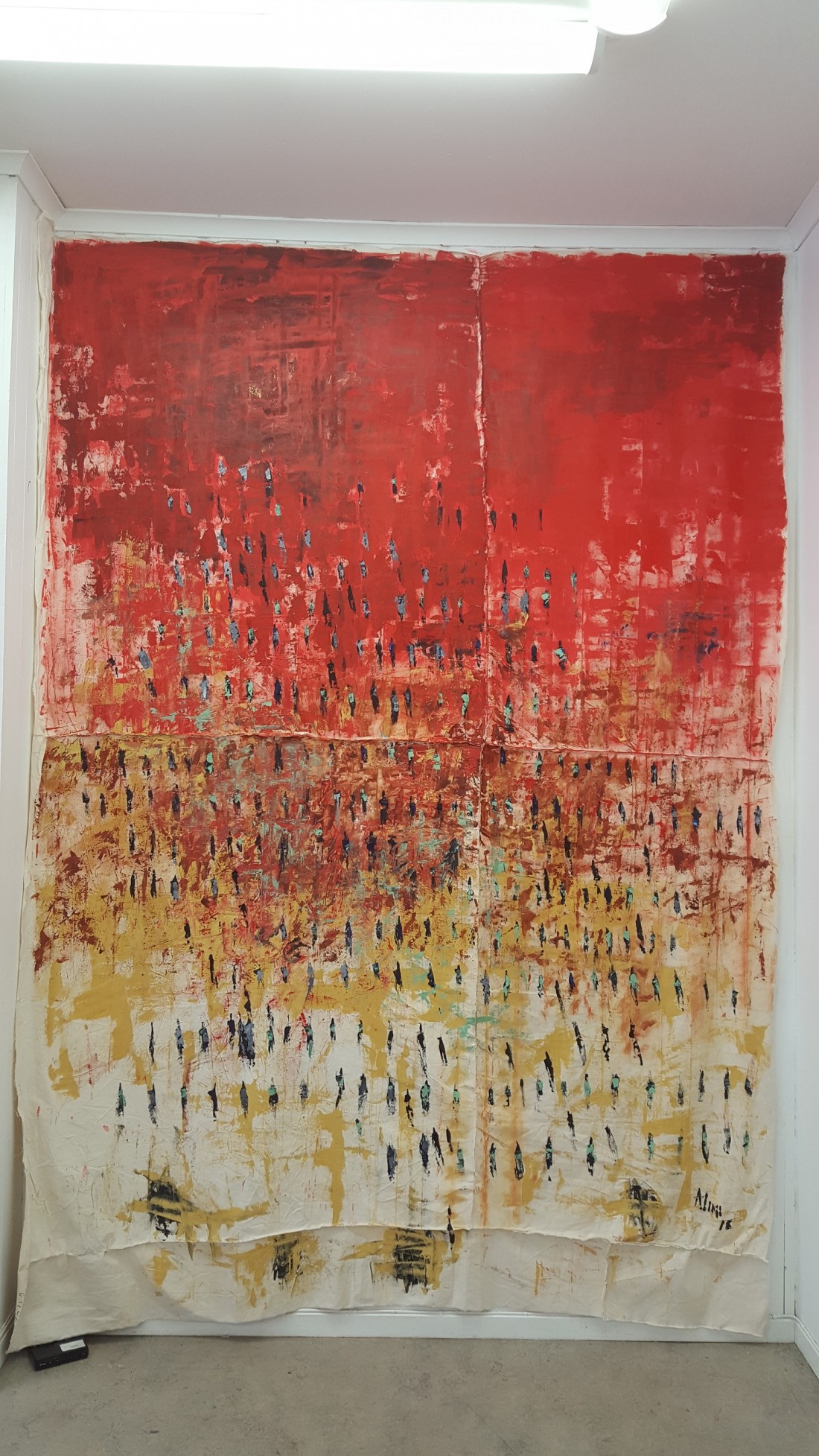
Artist Residency at Konstepidemin
MIGRATION WITHOUT BORDER SERIES
This body of work is stemmed from my observation and the impact if we have migration without border. The World Bank and the United Nations have highlighted the impact of conflicts on civilians in a report showing that the number of displaced people around the globe is equivalent to the UK’s population of 65 million.
Extreme poverty is now increasingly concentrated among vulnerable groups, including people who had to flee in the face of conflict and violence, and their presence affects development prospects in the communities that are hosting them
Large movements of people are also fuelling xenophobic reactions, even in high-income countries, and this could threaten the consensus that is underpinning global economic growth.”
The study singled out Afghanistan, Burundi, the Caucasus, Colombia, the Democratic Republic of the Congo, Iraq, Somalia, Sudan, Syria and the former Yugoslavia as responsible for a crisis that affects 1% of the world’s population.
Mobility is a privilege that is unevenly distributed among human beings, citizens from developed countries may travel and settle down almost anywhere in the world, while their fellow human beings from less developed countries depend upon the uncertain issuance of visa.
Migration policies cannot be beneficial to all; skilled migration is good for receiving countries, but less for sending ones family reunification is important to migrants but not always useful to receiving countries. The individual interests of migrants can create an undesirable brain drain and so on. It is difficult simultaneously the citizens of both countries of destination and origin and the migrant themselves, one needs to make social and political choices.
How many people would migrate. According to UN High Commissioner for Refugees [UNHCR] Handbook states It may be assumed that, unless he or she seeks adventure or just wishes to see the world a person would not normally abandoned his home and country without some compelling reason. More ever restrictions to mobility limit migrants freedom to circulate, thus leading to a higher rate of permanent settlement.
Migration without borders is argued would increase the number of migrants and the tension between them and the native population, notably concerning the labour market which would lead to anti-immigration mobilization and foster populist and extreme right political formations.
Border controls indirectly feed racism they fuel the idea that foreigners and foreign looking people are undesirable, thus casting doubts on the right of documented and naturalized migrants to live in receiving societies. Ultimately, this reinforces internal boundaries along ethnic lines jeopardizing migrants access to decent living conditions and challenging social cohesion.
